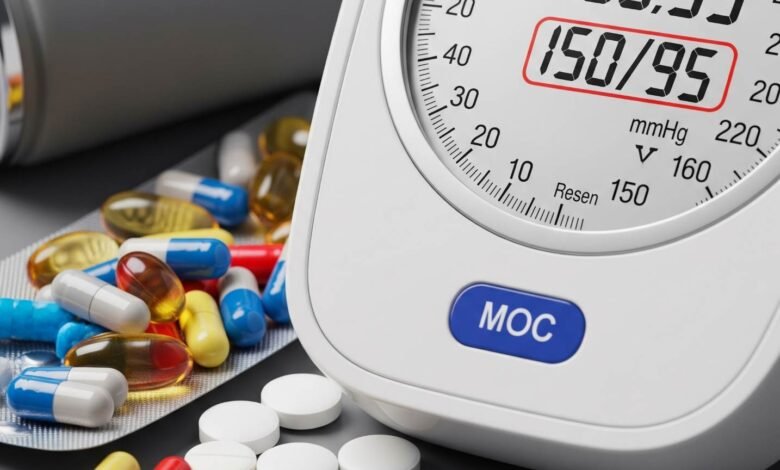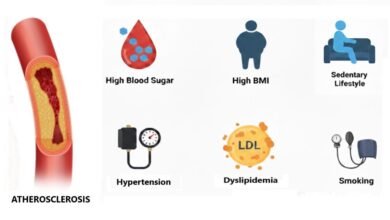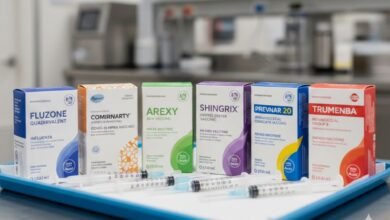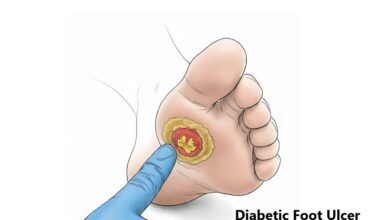Long Term PPI Use Linked to Increased Hypertension Risk in Menopausal Women

New research published in the Journal of the American Heart Association indicates a significant association between long-term use of proton pump inhibitors (PPIs) and an increased risk of developing hypertension in menopausal women. This extensive observational study, drawing data from the Women’s Health Initiative Observational Study (WHI-OS), highlights a concerning trend, particularly with prolonged use of these commonly prescribed medications.
Proton pump inhibitors are widely used to treat conditions such as esophagitis and peptic ulcer disease due to their high efficacy. They are among the most frequently prescribed medications in the United States, with PPI use more than doubling between 2002 and 2009. However, inappropriate or prolonged use has been associated with various adverse events, including bone fractures, pneumonia, and kidney damage.
The mechanism behind this potential link centers on the role of gastric acid in regulating blood pressure. PPIs suppress gastric acid secretion, which is crucial for the conversion of oral nitrite into nitric oxide (NO). Nitric oxide is a potent vasodilator that plays a critical role in blood pressure regulation. Researchers hypothesized that by affecting NO production, PPIs could influence blood pressure.
The study enrolled 64,720 menopausal women, aged 50 to 79, who were free from cardiovascular disease and hypertension at the outset of the WHI-OS between 1993 and 1998. PPI use and duration were determined using medication inventories. The primary outcome measured was physician-diagnosed or treated incident hypertension, assessed through annual self-report questionnaires. Hazard ratios (HRs) and 95% confidence intervals (CIs) were calculated using multivariable Cox proportional hazard models.
After a mean follow-up of 8.7 years, 28,951 cases of incident hypertension were identified. The findings revealed that PPI use was associated with a 17% higher risk of hypertension compared to non-use in the fully adjusted model (HR, 1.17 [95% CI, 1.08-1.27]). Moreover, a clear dose-response relationship was observed: longer PPI use durations were significantly associated with incrementally higher risks of hypertension (HRs of 1.13, 1.17, and 1.28 for <1 year, 1-3 years, and >3 years of use, respectively, with a trend P-value <0.001).
Further analysis showed that new PPI users experienced a significant 3.39 mmHg increase in multivariable-adjusted mean systolic blood pressure over three years compared to never users (P=0.049). New and continued PPI users also had significantly higher risks of hypertension compared to never users (HR, 1.13 [95% CI, 1.04-1.22] for new users; HR, 1.20 [95% CI, 1.05-1.37] for continued users). Notably, former users showed no significant association with hypertension risk.
This study represents the first large-scale epidemiological investigation to assess the link between PPI use and incident hypertension, particularly focusing on the impact of long-term use. The clinical implications suggest that long-term PPI use (defined as ≥1 year) is associated with a higher risk of hypertension.
The authors emphasize the need for further studies to confirm these findings and explore the underlying mechanisms. These results underscore the importance for healthcare providers to carefully consider the duration of PPI prescriptions, especially in menopausal women, and to monitor blood pressure in patients on long-term PPI therapy.
Reference: Soliman AI, et al. “Proton Pump Inhibitor Use and Incident Hypertension in Menopausal Women.” Journal of the American Heart Association. 2025;14:e040009. DOI: 10.1161/JAHA.124.040009







